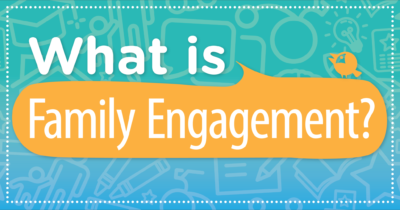
Introduction: Educators’ and parents’ perception of family engagement in a Head Start by Sondeania Marie Johnson. This study talks about the benefits of children's development and how some educators feel unprepared to engage families regarding family engagement. Family engagement is when an organization creates an interactive process through a program that allows families and children to build goal-oriented relationships. Head Start (2022) family engagement is doing with, not to or for, families; it involves the families along with their children and staff working together towards a goal.
Purpose: This study aimed to explore educators’ and parents’ perceptions of family engagement at a Head Start program.
Population/Participants: The study focused on 10 educators employed in an urban Head Start program familiar with parent engagement, serving 3–5-year-old students. Five parents were also interviewed.
Methodology: The qualitative research with purposeful sampling, was conducted through semi-structured interviews.
Data Sources: The sources used were interviews recorded through the Zoom platform for both parents and teachers. Later, manually transcribed after each interview.
Conclusion: The study concluded that family engagement was vital to a child’s academic success and that the parent’s role is to support the child’s learning (Johnson, 2022). The study also showed that parents can use the results as a guide or tool for family engagement. Both parents and educators had similar definitions of the importance of family engagement, that they both have important roles in their students and children’s learning at the Head Start program (Johnson, 2022).
Relevant Literature
1. Head Start PFCE Framework, (2018)- a research-based guide that provides families and children with positive family-oriented positive family engagements. Within the framework, three terms can be effective and have a long-term impact on children and families.
Systemic- the individuals understand the role of their position and how it promotes the vision of PFCE.
Intergrated-everyone employed by Head Start coordinates and reinforces each other's efforts to help impact the program so families have a seamless experience.
Comprehensive- All staff ensure that the available services and resources can meet the needs, interests, and strengths of each child and family. The framework talks about how the seven family outcomes promote a positive child outcome. Head Start/ Early Head Start uses the data collected to continue to improve family engagement, community strengths, and needs for assessments.
2. Mothers Perspectives (2020) This study investigated the different ways families engaged in their children's Pre-K experience as teachers developed a better understanding of the family members’ perspectives and experiences. While also fostering ways to increase ways for families to feel included in their child educational experiences. Some mothers felt that their child being in a classroom and helping the teacher, taking their child to school, or spending quality time at home was parental engagement (Liang et al., 2020).
3. Effects of teacher training (2019) This study was designed to examine the efficacy of family engagement on teacher-family engagement- outcomes. When teachers take professional development courses that focus on improving the family's role in their child's education and positively impact the teacher's attitude. The study showed that the teacher training positively affected all the teachers together and separately and the family engagement improved.
Reflecting the Developmentally Appropriate Practice
Family engagement in Head Start reflects the curriculum used; the home learning sent home weekly is developmentally appropriate because it goes hand in hand. The study reflected that learning activities such as reading, math, science, and arts are effective family engagement activities, supporting academic achievement and engaging their child in learning (Johnson, 2022). As a Head Start teacher, the previous statement is true: the children in my classroom usually showed progress at the end of the study, such as bugs; they could tell you more than when the study started. Communication and home learning activities are a form of family engagement while supporting student learning (Johnson, 2022).
Furthering my work
This dissertation is currently on my favorite list. I love reading about all things Head Start, I have been working in the Head Start program since graduating from college in 2011, and I am a Head Start alumnae. Each year at parent orientation, I discuss family engagement and why it is important for Head Start parents. I tell them that the family must complete the home learning activities we provide weekly. Family engagement plays a key role in the children’s social-emotional development and academic competencies when using weekly parent –involvement activities (Smith & Sheridan, 2019). When the students use home learning, it supports my teaching theme. The nonformal learning and teaching practices support literacy at home and monitor homework completion (Smith & Sheridan, 2019). As an employee of a Head Start program, I must communicate with my parents daily and develop a relationship with them that values, culture, and shapes the life of every child in my care.
References
Johnson, S. M. (2022). Educators’ and Parents’ Perceptions of Family Engagement in a Head Start Program. Walden Dissertations and Doctoral Studies.
Liang, E., Peters, L. E., Lomidze, A., & Akaba, S. (2020). “I like being involved in school stuff”: Mothers’ perspectives around their participation in family engagement in universal
prekindergarten. School Community Journal, 30(1), 59– 87.
Smith, T., & Sheridan, S. (2019). The effects of teacher training on teachers’ family engagement practices, attitudes, and knowledge: A meta-analysis, Journal of Educational and
Psychological Consultation, 29 (2), 128-157.
U.S. Department of Health and Human Services, Administration for Children and Families, Office of Head Start, National Center on Parent, Family, and Community Engagement. (2020). Head Start parent, family, and community engagement framework.

No comments:
Post a Comment